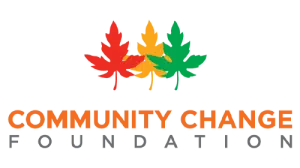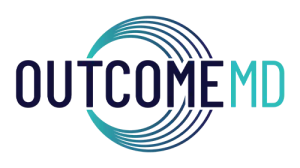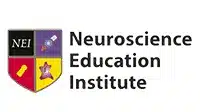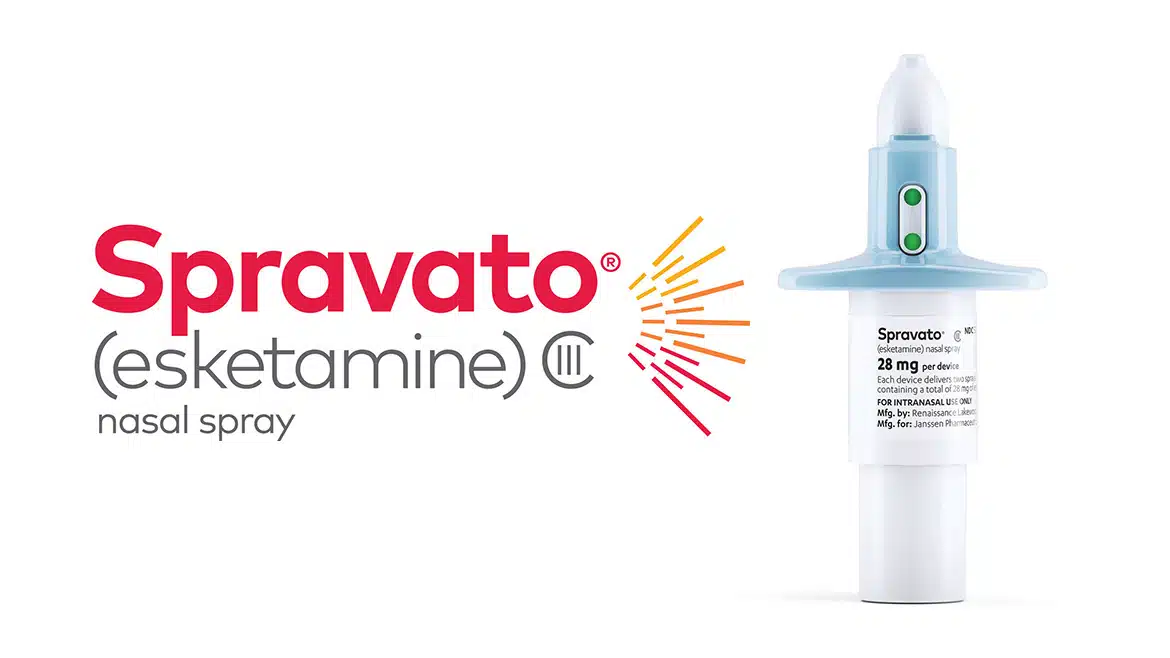Ketamine Research in Mental Health Therapies
Welcome to Revitalist, your sanctuary for transformative mental health solutions. We are steadfastly committed to pioneering innovative approaches in mental health care, delivering a blend of cutting-edge technology and deeply compassionate care. Among the myriad of treatments and interventions available, one stands out as particularly promising: the therapeutic use of ketamine. As leaders in this exciting field, we recognize our responsibility to not only offer this groundbreaking treatment but to also educate our community about its potential.
We understand that the realm of mental health care is ever-evolving, and staying informed is key to making empowered choices for your well-being. With that in mind, we’ve created this comprehensive guide to shed light on ketamine research, particularly as it pertains to mental health therapies. Whether you’re a patient, a healthcare provider, or simply someone interested in the advancements of mental health treatments, this page is designed for you. We’ll be covering a range of topics from foundational scientific studies, clinical trials, to the very latest breakthroughs that are shaping the way we understand and treat mental health conditions.
Our mission is to provide transparent, evidence-based information to help you or your loved ones make informed decisions about mental health care. With ketamine therapy, we are entering a new paradigm of treatment possibilities, one that offers quicker relief and more sustainable results for conditions that have traditionally been challenging to treat. So, whether you’re considering ketamine treatment for yourself or someone you know, or you’re looking to understand the science behind it, this guide will offer you a thorough understanding of this transformative therapy. Welcome to the frontier of mental health care; we’re delighted to have you on this journey with us.
A Brief History of Ketamine
Ketamine was first synthesized in 1962 by Calvin L. Stevens, a chemistry professor, as an alternative to phencyclidine (PCP). Initially intended to serve as a safer anesthetic option for surgeries and medical procedures, ketamine was fast-tracked for approval by the U.S. FDA due to its safety profile and was extensively used during the Vietnam War as a field anesthetic for soldiers. For decades, its primary application remained within the realms of anesthesia, emergency medicine, and pain management, particularly in settings that required fast-acting and safe options. Ketamine has been a staple in operating rooms, veterinary medicine, and even pediatric care due to its rapid onset and brief duration of effects.
However, the story of ketamine took a fascinating turn in the early 2000s. Researchers, intrigued by its pharmacological profile, began to explore its application in mental health treatment. Initial studies targeted conditions like depression, anxiety, and Post Traumatic Stress Disorder (PTSD), with preliminary findings revealing that even low doses of ketamine could result in rapid and significant reductions in symptoms. This was groundbreaking because many existing treatments for these conditions either take weeks to show efficacy, come with a host of side effects, or simply don’t work for a significant subset of patients.
Since then, the interest in ketamine’s potential for treating mental health conditions has exploded. Rigorous clinical trials, meta-analyses, and longitudinal studies have been conducted to understand the depth and breadth of ketamine’s therapeutic impact. The data has been compelling enough for the American Psychiatric Association to issue a consensus statement on the use of ketamine in the treatment of mood disorders, marking its transformation from a surgical anesthetic to a psychiatric lifeline.
Today, ketamine stands as one of the most exciting and promising treatments in the field of mental health. While ongoing research continues to fine-tune our understanding, ketamine has already revolutionized the mental health landscape and offers hope for those who have found little relief in traditional therapies.
Mechanism of Action
Ketamine’s unique mechanism of action sets it apart from traditional medications like SSRIs (Selective Serotonin Reuptake Inhibitors) and benzodiazepines that are often prescribed for mental health conditions like depression and anxiety. Unlike these medications, which primarily modulate serotonin or GABA levels in the brain and can take weeks to exert their full therapeutic effect, ketamine acts rapidly and produces noticeable outcomes in a matter of hours.
The drug primarily interacts with the NMDA (N-methyl-D-aspartate) receptor, which plays a crucial role in synaptic plasticity, memory formation, and emotional regulation. These functions are often compromised in individuals suffering from mental health disorders. By blocking the NMDA receptors, ketamine interrupts the reuptake of glutamate, a neurotransmitter involved in mood and cognition. This leads to a cascade of events that promote the release of other neurotransmitters and facilitate new neural connections, a process known as synaptic plasticity.
Ketamine’s rapid modulation of these neural pathways has shown to quickly alleviate symptoms in a variety of mental health conditions, including but not limited to depression, anxiety, and PTSD. This rapid action is especially significant for patients who are at high risk or are unresponsive to traditional treatments, providing them with a faster route to symptom relief and emotional stability. Thus, understanding ketamine’s mechanism of action is key to appreciating its transformative potential in mental health treatment.
Pioneering Studies
Yale Research
In the early stages of researching ketamine’s potential therapeutic uses, one landmark study that stands out is the research conducted by Yale University in 2000. This pioneering work was one of the first to rigorously demonstrate ketamine’s significant antidepressant effects. The Yale team found that even a single low dose of the drug could produce not only rapid and robust antidepressant effects but also enduring relief, with some subjects experiencing benefits for up to a week after treatment. These results were groundbreaking because traditional antidepressants often take weeks to become fully effective and don’t work for everyone.
NIMH Studies
Building on the momentum of the Yale study, the National Institute of Mental Health (NIMH) threw its weight behind this fascinating compound. Over the years, the NIMH conducted a series of critical studies aiming to replicate and extend the promising results found by the Yale researchers. These studies validated ketamine’s rapid-acting antidepressant effects, contributing significantly to the scientific consensus on the drug’s efficacy. Moreover, the NIMH’s work opened new avenues for research, focusing on optimal methods for ketamine administration, appropriate dosing strategies, and the subsets of patients who might derive the most benefit from its effects.
The NIMH also explored ketamine’s ability to reduce suicidal ideation, a particularly dangerous symptom of severe depression. Its studies found that ketamine could swiftly decrease suicidal thoughts, often within just a few hours of administration, offering a potentially life-saving treatment for people in acute crisis.
These foundational studies have been instrumental in catalyzing an explosion of research in the field. Numerous clinical trials and smaller-scale studies have since been undertaken to delve deeper into ketamine’s utility for treating a variety of mental health conditions, including generalized anxiety disorder, post-traumatic stress disorder (PTSD), and obsessive-compulsive disorder (OCD), among others. Each new study adds another piece to the puzzle, helping to refine treatment protocols and expand our understanding of who could benefit from this transformative medication.
Together, the work of institutions like Yale and the NIMH have made significant strides in shifting the medical community’s perception of ketamine from a surgical anesthetic to a revolutionary mental health treatment option. These pioneering studies have laid the groundwork for current and future research, making it possible to envision a new paradigm in mental health care.
Clinical Applications
Depression
Depression, a debilitating mental health condition affecting millions worldwide, has been at the forefront of ketamine research. Traditional treatments like SSRIs often take weeks to show significant improvements, and even then, they may not work for everyone. This is where ketamine has demonstrated its transformative potential. Studies have consistently shown that up to 70% of patients who had not responded to other antidepressants experienced rapid and significant relief from their depressive symptoms after receiving ketamine treatment. Moreover, these benefits often last for extended periods, ranging from days to weeks, thereby offering a more sustainable form of relief. This breakthrough finding has been a game-changer in psychiatric care, paving the way for fast-acting treatments that can tackle even the most resistant forms of depression.
Anxiety & PTSD
Anxiety disorders, including generalized anxiety disorder and post-traumatic stress disorder (PTSD), have also proven responsive to ketamine treatment. Research shows rapid reductions in symptoms often within hours of a single treatment, as opposed to weeks or months with conventional therapies. This speed is particularly advantageous for PTSD sufferers, who often experience acute episodes triggered by specific memories or events. Ketamine can offer immediate relief, thereby providing a new therapeutic avenue for those who have previously been unresponsive to other forms of treatment.
Bipolar Disorder
Ketamine’s applicability extends to the treatment of bipolar disorders as well. Although the research is in its initial stages, the early results show promise. Studies indicate that ketamine may be effective in treating depressive episodes associated with bipolar disorder, and ongoing trials aim to understand its impact on manic episodes. Researchers are optimistic that ketamine’s unique mechanism of action could make it a versatile treatment option for this complicated condition.
Suicidal Thoughts
Arguably one of the most critical and urgent applications of ketamine lies in its capacity to rapidly reduce suicidal ideation. Traditional treatments for suicidal thoughts often require hospitalization and are not always effective in immediate risk mitigation. In contrast, ketamine has shown a remarkable ability to drastically reduce suicidal thoughts in a matter of hours. This rapid action has life-saving implications, particularly for patients in acute psychiatric distress who are at imminent risk of self-harm or suicide.
With a growing body of evidence, ketamine is increasingly being recognized for its broad clinical applications beyond anesthetic use. As research continues to expand, ketamine is showing promise as a versatile and effective treatment for a range of severe mental health conditions. As clinical trials advance, we move closer to refining treatment protocols, understanding long-term effects, and potentially discovering new applications for this groundbreaking medication. The potential for transforming mental health care is immense, and we stand at the cusp of a new era that could redefine how we approach treatment for mental health disorders.
The Future of Ketamine Research
As we stand on the threshold of a new era in mental health care, the future of ketamine research shines brightly, signaling transformative potential for the field. While the past two decades have provided substantial insight into its rapid-acting benefits for various mental health conditions, the focus is gradually shifting toward more nuanced aspects of its usage.
One exciting avenue of research is the study of ketamine in conjunction with other therapies, such as cognitive-behavioral therapy (CBT), mindfulness practices, or even other pharmaceutical agents. The synergy between ketamine and these therapies may enhance and extend its beneficial effects, offering more comprehensive treatment plans for patients who struggle with co-morbid conditions or have found only partial relief from ketamine alone.
Fine-tuning dosages is another critical area under investigation. Researchers are studying how different dosing regimens affect the treatment’s efficacy, duration of relief, and potential side effects. Micro-dosing ketamine is also being studied as a way to maintain the treatment’s beneficial effects while minimizing any adverse outcomes. This precision in dosage customization could be groundbreaking, making it possible to offer personalized treatment plans that maximize benefits while minimizing risks.
A crucial area for future studies is examining the long-term effects of repeated ketamine use. Initial findings have been promising, suggesting that ketamine’s benefits can be sustained over extended periods with periodic ‘booster’ treatments. However, more research is needed to understand its long-term safety profile fully, especially regarding neurotoxicity, addiction potential, and other possible side effects.
Moreover, with the advancement of neuroimaging technologies, future research may offer a more in-depth understanding of how ketamine acts on the brain at the molecular and network levels. This could open doors to more targeted therapies that could treat specific symptoms or forms of mental health disorders with even greater efficacy.
In summary, as research methodologies become more sophisticated and clinical trials grow in scope and scale, ketamine’s role in mental health treatment is poised for significant evolution. From refining dosages to investigating synergistic treatment combinations and delving into the long-term safety profile, the future of ketamine research holds the promise of revolutionizing how we understand and treat mental health conditions.
The Research Continues
The journey into understanding the role of ketamine in mental health therapies is far from over; rather, it is a field of explosive growth and innovation. In many ways, ketamine is rewriting the rulebook, shifting paradigms and offering radically new perspectives in mental health treatment. This is a promising endeavor for those who have long struggled with conditions that are either partially responsive or entirely resistant to traditional therapies.
In addition to academic research, community-based clinical experiences at centers like Revitalist are contributing valuable data to the collective understanding of ketamine’s efficacy and safety. These real-world outcomes further underscore the potential of ketamine as a robust, fast-acting, and safe alternative for managing a range of mental health conditions.
What’s exciting about this journey is not just the destination—improved treatments for conditions like depression, anxiety, and PTSD—but also the pace at which advancements are happening. Research is evolving at a speed that gives real-time hope to those seeking immediate relief from their symptoms. The era of waiting months to gauge the efficacy of a treatment may soon be behind us, thanks to the rapid action of ketamine.
For those interested in exploring this groundbreaking treatment option, Revitalist is at the forefront of ketamine therapy. We offer initial consultations to discuss your specific needs and concerns, providing a tailored approach that aligns with the latest scientific findings. Our commitment to innovation, safety, and compassionate care makes us a trusted partner in your mental health journey.
We invite you to reach out and schedule a consultation with us. The future of mental health treatment is unfolding right now, and we are thrilled to offer you a seat at this transformative table.
Our Stories and Articles
Discover how Ketamine Therapy Depression Treatment is revolutionizing mental health care and transforming lives.
Introduction A Brief Overview of Depression and Its Impact on Society Depression is a common, yet serious, mood disorder that […]
Introduction to Spravato in Tampa FL, Knoxville TN and Johnson City TN Brief Overview of Spravato Spravato, also known as […]
Revitalist Offers a New Source of Relief
How Does Ketamine Work?
Ketamine has been shown to stimulate neuron growth in the brain in as quickly as one hour. Many scientists studying ketamine are focusing on the neurotransmitter glutamate, which plays an important role in neural activation.
Can My Doctor Refer Me To Revitalist?
The Revitalist Provider Portal allows your doctor to easily, and with much attention to privacy, refer you for consultation. Should you receive treatment, we will communicate with your existing provider(s) regarding your care.
How Soon Will My Symptoms Improve?
More than 70% of patients with treatment-resistant depression (including bipolar patients) experience rapid relief after a low-dose ketamine infusion. Similar success rates have been seen in returning combat veterans suffering from PTSD.











